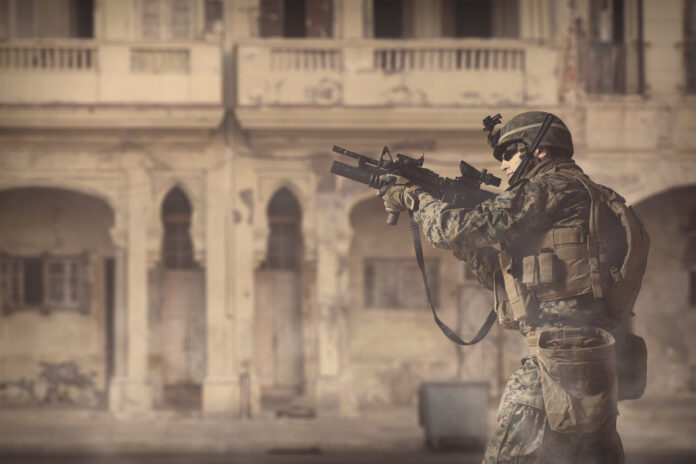Twenty years after the U.S.-led invasion precipitated the destruction of Iraq, a clear majority of Iraqis believe that it doesn’t matter if the country is democratic or not as long as the government can maintain stability.
According to a survey by the Arab Barometer organisation, 75% of Iraqis “strongly agree” or “somewhat agree” that stability is more important than the system of government.
On the other hand, only 24% of Iraqis believe democracy is more important than stability.
On March 20, 2003, U.S. forces invaded Iraq and toppled the government of Saddam Hussein. The U.S. then set about a political transformation of Iraq with the stated goal of bringing about democracy, including instilling a parliamentary system with regular elections.
Since that time Iraq has suffered significant turmoil, including an armed resistance against the U.S. invaders, civil conflict, and the eventual takeover of large swaths of the country by the ISIS.
Today Iraq remains deeply divided. The Kurdistan Regional Government (KRG) operates largely autonomously from the remainder of the country while the parliament in Baghdad remains disunited.
The Arab Barometer survey reveals that while Iraqis remained very committed to the idea of democracy up until the early 2010s, doubts about the system have increased significantly in the years after 2013.
Subscribe to our newsletter and stay updated on the latest news and updates from around the Muslim world!
Now, although a majority of Iraqis continue to favour democracy over other systems, they are among the most sceptical populations across the MENA region about this system of governance.
Other results from the survey include:
- 68% of Iraqis still affirm that despite its problems, democracy remains the best system of governance.
- Levels of trust in the government have fallen dramatically since the early 2010s. In 2013, almost half (47%) of Iraqis had confidence in the government, which is nearly twice the percentage in 2022 (26 percent).
- Few in the country believe elections are fully free and fair. A plurality say they are not free and fair (42%) while a further 27% say they are largely free and fair but have minor problems. Only 29% believe that the October 2021 parliamentary elections were entirely free and fair.
- Nine-in-ten Iraqis say that there is corruption to a great or medium extent in state institutions, which is essentially unchanged since 2011.
- Fewer than one-in-three Iraqis are satisfied or completely satisfied with basic services such as trash collection (31 percent), the healthcare system (29 percent), the education system (23 percent), and the quality of the country’s streets (22 percent).
Michael Robbins, of Arab Barometer, said: “Twenty years after the fall of the regime of Saddam Hussein, Iraqis are looking for a robust political system that yields results. Although they affirm that democracy is the best type of system, clear majorities would be willing to accept an alternative system of governance if it would produce outcomes that improve their current situation.
“For example, three-quarters say that it does not matter if the country is democratic or undemocratic so long as the government can maintain stability…
“When asked if they agree with the statement that as long as the government can solve the economic problems, it does not matter what kind of government it is, eight-in-ten (79 percent) Iraqis agree. This level is again the highest in the MENA countries surveyed, ranking slightly above the percentage in Tunisia and Libya.
“Finally, when asked if the country needs a leader who can bend the rules if necessary to get things done, nearly nine-in-ten Iraqis agree, which is greater than in any other country included in the survey.”























